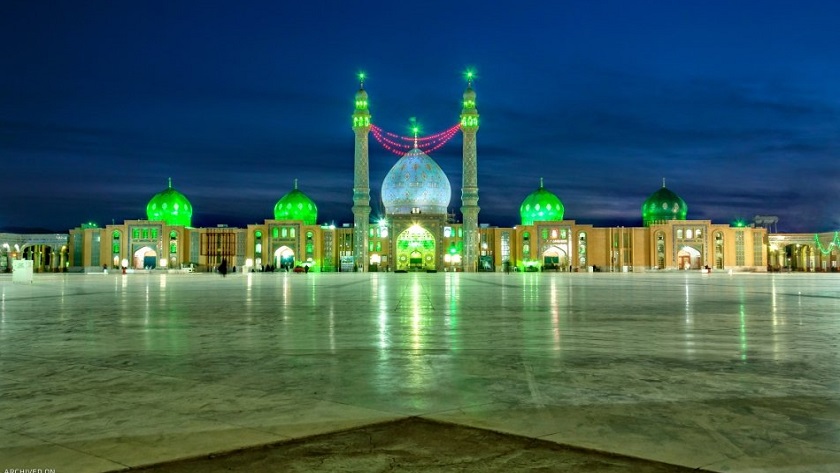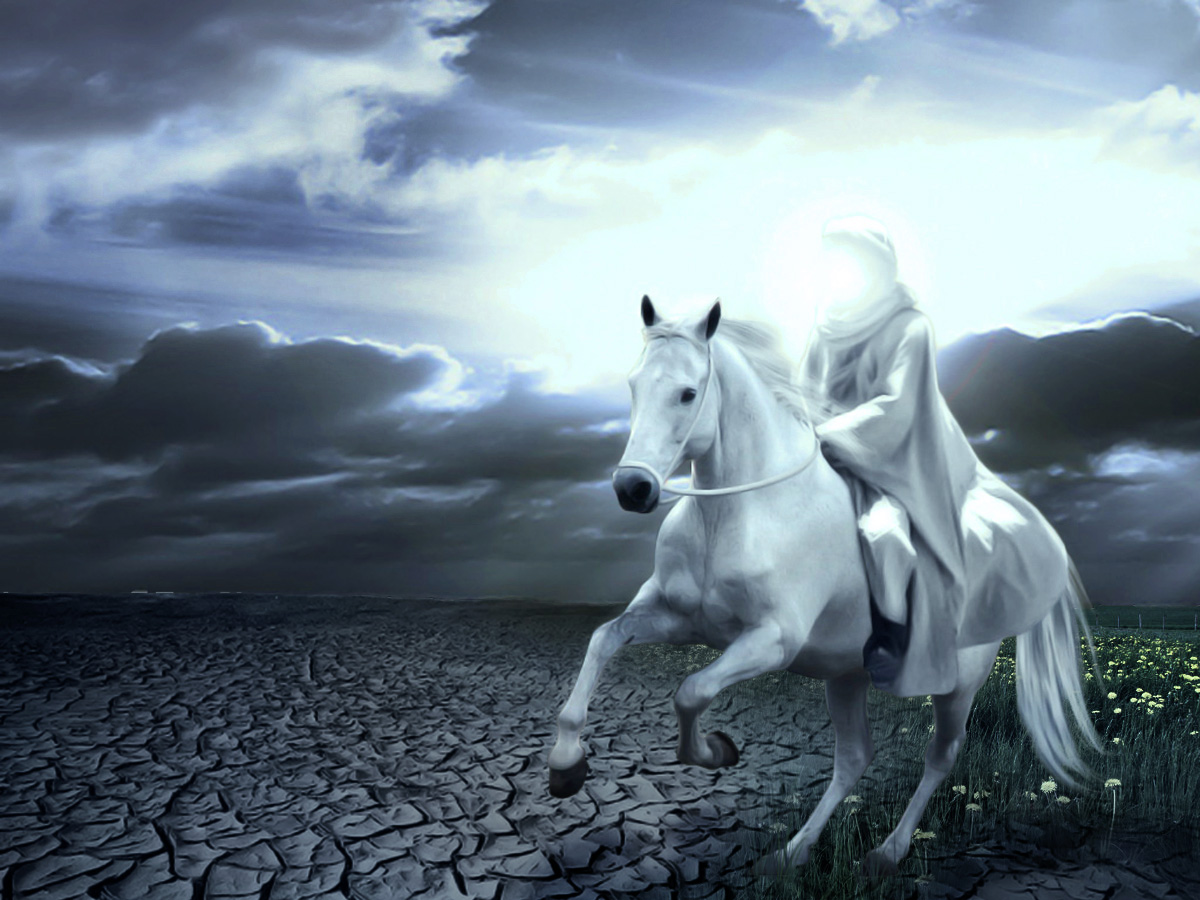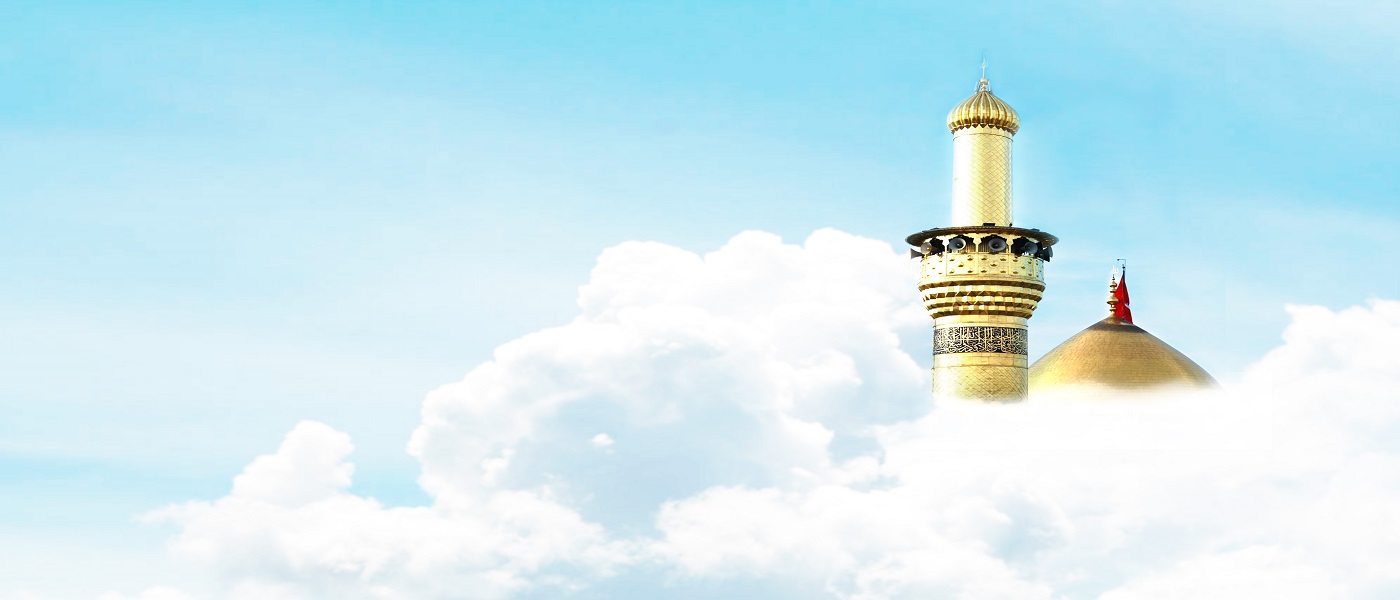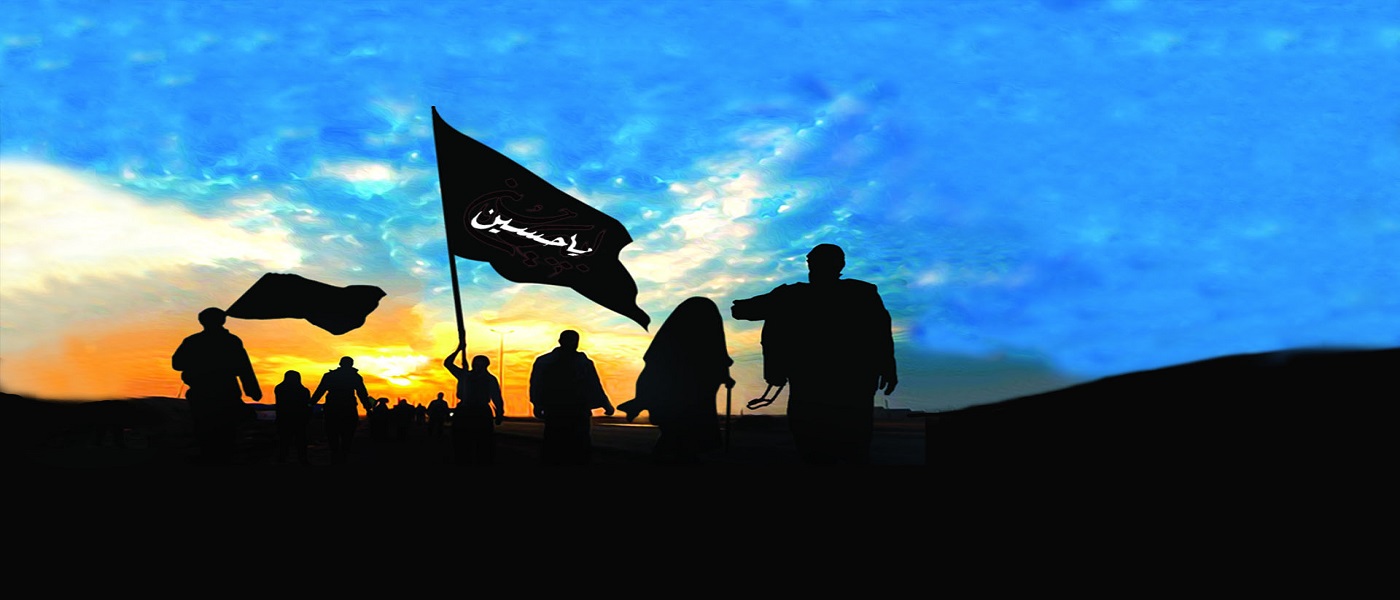

Our responsibilities toward Imam Mahdi (AS)
Imam Mahdi (AS) is the last and the twelfth Imam of the Shiite Muslims. He was born in 255 H (874 AC) and the Shiite Muslims believe that their last Imam has been alive for approximately 1150 years. According to Shiite narrations, Imam Mahdi (AS) is currently in occultation and hidden from the public.
In this regard, Imam Kazim (AS) says:
After that, the narrator of this hadith asks the Imam: “Is there going to be a hidden Imam?” Imam Kazim (AS) replied:
Yes! He will be hidden from the eyes of the people but the hearts of the faithful will not forget him. (1)
Despite Imam Mahdi (AS) being in occultation, we have responsibilities and duties to fulfill during this period. His hidden state doesn’t imply that Shiite Muslims have nothing to do for their faith and religion.
In fact, the best way to maintain a strong connection with our Imam is by following his orders. The Shiite Imams have told us about the responsibilities we have during this special time and some of them are mentioned below:
Upholding our faith
During the occultation of the Imam, it is a time when people may lose faith in him. In this regard, Imam Sadiq (AS) said:
With Mahdi (AS), there will be a little number of Arabs.
Then the Imam was told “But there are so many Arabs now that have faith in this religion!” Imam Sadiq (AS) replied:
People will inevitably be tested and they will be differentiated from one another and many will fail this test. (2)
The Holy Prophet (PBUH & HP) once prayed:
O Allah! Show me my brothers, Show me my brothers.
The people around him asked “O Messenger of Allah! Aren’t we your brothers?”
He responded:
No! you are my companions. But my real brothers are those who live in the last times of this world. They believe in me while they haven’t seen me … keeping faith in those times, will be more difficult than cutting the thorns of a plant on a dark night or holding a burning wood in one’s hands. They are the lights in the darkness and Allah will save them from every catastrophic test of seduction. (3)
As you see, being a faithful person is easy during the occultation. Therefore, one of our responsibilities is to keep our belief in Islam during these times.
Harith ibn Muqhairah (one of the followers of Imam Sadiq (AS)) says “Once I told Imam Sadiq (AS): ‘We are being told that the leader of this religion will be hidden one day. So, in those times, what should we do?’”
Imam Sadiq (AS) said:
Keep your very faith that you have now and do as you have been ordered before him, until the time that everything will be clear for you [the arrival of Imam Mahdi (AS)].(4)

Getting to know Imam Mahdi (AS) more
Understanding the message of our Imams and having knowledge about their attributes and role in this world is crucial in the Shiite view. This is one of the most significant duties of Shias during the occultation. In this regard Imam Sadiq (AS) advises one of his pupils named Fozail:
O Fozail! Get to know your Imam because if you know him, it will be the same for youwhether his arrival is soon or delayed and anyone who knows their Imam and then dies before his arrival is like one of his soldiers. (5)
Praying
In the Islamic point of view, praying is one of the most effective ways to have our wishes fulfilled. We should call upon Allah when we need Him and ask him to solve our problems, trusting that He will answer our prayers. The holy Prophet (PBUH & HP) said:
Call upon Allah while being certain that He will answer. (6)
Living without a guide in this world is the most significant problem we have. Without our Imams, we Shias have no savor and our problems seem never-ending. In this regard, Imam Sadiq (AS) says:
The problems of the Earth will not be finished except by an Imam. (7)
Therefore, one of the most important prayers we should make is for the return of Imam Mahdi (AS). The Shiite Imams have persuaded their followers to pray for the arrival of Imam Mahdi (AS).
Imam Sadiq (AS) told one of his pupils named Humran about the attributes of the occultation time and advised him:
When you saw … that the world is highly favorable for the unfaithful people and the flag of the righteous people is hidden, be cautious and ask Allah to save you. (8)
Imam Sadiq (AS) also said:
You Shias will face doubts in the future and [during those times] you won’t see a right flag or a guiding Imam and no one will be saved in those times except for the ones who pray like a drowning person.
Then the narrator of the hadith asks the Imam: “How can I pray like a drowning person?”
Imam Sadiq (AS) replied:
You should say:
“یا اللّه یا رحمن یا رحیم یا مقلب القلوب ثبت قلوبنا علی دینک”
O Allah! O Rahman! O Rahim! O Controller of the hearts! Make my heart keep its faith in your religion. (9)
Imam Mahdi (AS) himself wrote to one of his followers:
Pray so much to Allah for my arrival because it resolves all your problems (10)
In addition to this fact that praying makes his arrival more likely to happen sooner, praying is also the best way to relate to Imam Mahdi (AS) and this way, we can make a good connection to him. In return, Imam Mahdi (AS) sees that you are always thinking about him and praying for his arrival. It is obvious that Imam Mahdi (AS) loves the ones who do not forget him and pray for him more than others. Due to this fact, Imam Mahdi (AS) will pray for us in return and clearly, the praying of an Imam surely will be answered by Allah.
Don’t forget that it is so important for praying for the arrival Imam Mahdi (AS) to be in a group. You should get together with your family, friends or even the other people to pray for Imam Mahdi (AS).
Imam Sadiq (AS) said:
If four people gather and pray, they won’t leave each other until Allah answers their supplication (11)
He also said:
When something would bother my father (Imam Baqir), he would gather all the women and kids in the house and he would pray and they would say “Amen.” (12)
As you see, praying together as a group holds great important for it to be answered by Allah. Imagine the impact if all the Shiite Muslims united in praying for the arrival of Imam Mahdi (AS) pure hearts. It is obvious that his occultation wouldn’t have prolonged for so long. So, one of our important responsibilities toward Imam Mahdi (AS) is to encourage others to pray for his arrival and we’d better pray in group.
There are many other responsibilities we have during the occultation. The most important thing is to follow the orders of the previous Imams and fulfill all of our religious obligations so that Allah would save us from this dangerous time.
Resources
- Kamal ad-Din, Sheikh Saduq, vol.2, pg.369
- Al-Ghaybah, Sheikh an-No’mani, pg.204
- Basa’ir ad-Darajat, As-Saffar al-Qommi, pg.84
- Al-Ghaybah, Sheikh an-No’mani, pg.159
- Al-Ghaybah, Sheikh an-No’mani, pg.329
- Bihar al-Anvar, Allamah al-Majlesi, vol.90, pg.321
- Al-Kafi, Sheikh Koleini, vol.2, pg.21
- Al-Kafi, Sheikh Koleini, vol.8, pg.42
- Kamal ad-Din, Sheikh Saduq, vol.2, pg.352
- Al-Ih’tijaj, Sheikh at-Tabrasi, vol.2, pg.284
- Al-Kafi, Sheikh Koleini, vol.2, pg.487
- Al-Kafi, Sheikh Koleini, vol.2, pg.487
Share This Article

6 Signs of Courage in Imam Hussain (AS) and His Revolution
It takes courage to live in this world. Because if you are alive, then you need to take action. And for taking a decisive step, you need to be courageous. The courage to stand up for an oppressed person, the courage to stand up against discrimination, the courage to stop violence against animals, the courage to preserve the earth, or even the courage to listen to the news of genocide and wish to have the strength to do something for it.
But many of us do not take action. Or do not even care. We may be afraid or may wait for someone else to do something. Say a superman or someone beyond us.
Many philosophers from Plato and Aristotle to modern thinkers regard courage as one of the most vital human virtues. For Plato, courage is “what allows reason to rule, both in the individual and in society.” Aristotle also believes that courage is not just about taking risks but thinking wisely in the face of danger [1]. Taking risks is courageous, but knowing why you are risking is even more critical.
What Makes Courage Different in Islam?
Islam, also, values the attribute of courage highly [i]. In Islam courage is the result of many other virtues. Even more, the reason behind your courageous deed is of more importance than having courage in itself. In other words, you are courageous if you are taking action for the right cause. That is, what you have found belief in after in-depth and rational investigation [ii], and do not forget to be moral along the way.
Imam Hussain (AS) Was Courageous in the true Sense of the Word Because He…
1. Stood up against What Was Wrong
Imam Hussain (AS), saw the injustice that was imposed upon the society of his time and realized how what the rulers called Islam was far from the true teachings of Islam. Oppression, tyranny, unjust use of public property, etc. made life miserable for people.
So, instead of remaining silent and doing nothing, he decided to improve the society. He practiced courage in standing up against what was wrong, and in accepting the dangers of his decision.
Surrendering to and accepting the injustice and oppression, is considered a huge sin in Islam for someone who is capable of standing up against it and can improve the situation. That is one of the reasons why enjoining the right and forbidding the wrong (Amr bi-l-maʿruf and Nahy ʿani-l-munkar) are among the practical principles of Islam; to improve the society and bring awareness to people.
2.Took risks, but not at the Expense of Transgressing Human Values
Imam Hussain (AS) was courageous and stood up against what was wrong. But he never gave up his human virtues for the sake of furthering his purpose. In other words, for Imam Hussain (AS), “the end does not justify the means.” While his enemy was impatient to start the war, he did his best to prevent it by negotiating and bringing awareness to them [1].
He was not afraid of fighting, yet, for him starting a war with the enemy was not the end. Instead, leading them to what is right, toward a life of honor and dignity rather than humiliation and oppression, was his ultimate purpose. Imam Hussain (AS), tried to show that being just is far more important than being courageous. If everyone is just, then no right would be taken away, and you do not need to be courageous to stand up against it [iii].
According to Imam Ali (AS), courage is dependent upon three virtues which complement each other. These are self-sacrifice, not bowing down to humiliation and oppression and not being after making a name for yourself [2]. In his movement, Imam Hussain (AS) exhibited all these virtues. He sacrificed his life and family, did not surrender to the injustice his enemies were imposing, and never cared about his fame but was entirely devoted to Allah’s cause [iv].
3. Insisted on His Right Cause, not any Cause
In Islam, the intention always comes before the action. Imam Hussain (AS) knew well why he was taking action. For him, nothing was more important than Allah’s satisfaction and reviving the true teachings and peaceful message of Islam in the corrupt society of his time [v].
He was courageous for the right cause. Neither was he after usurping the throne, nor manipulating people for his own sake. In that case, he would not be courageous anymore but selfish. As Charles Dickens admitted, “If Husain (as) had fought to quench his worldly desires…then I do not understand why his sister, wife, and children accompanied him. It stands to reason, therefore, that he sacrificed purely for Islam” [6].
4. Was Cautious in his Courage
Imam Hussain (AS) did take a risk in furthering his purpose, but he never acted unwisely and on his whim. When people sent thousands of letters from Kufa to Imam Hussain (AS), to ask for his help and declare their devotion to him, he did not accept their invitation immediately.
Instead, he first sent a representative to their city to validate their claim. Also, on the day of Ashura, despite his enemy's insistence on war, and while he was not afraid of fighting with them, he first tried to reason with them. You cannot be called courageous if you let go of your insight and wisdom and act recklessly [vi].
5. Despite His Strength was not after Making War
As said earlier, Imam Hussain (AS) was not willing to go to war with his enemy. While he was fully capable of fighting with them, and he courageously did it with only 72 people against thousands, he was never in favor of making war without any good reason. He was a courageous leader and guide, not a ruthless tyrant.
Thus, he first tried to guide his enemy toward the true teachings of Islam through speaking and reasoning, but when he saw their insistence on being ignorant, he was forced into a war.
6. Was Strong and Patient when he was faced with Difficulty
It takes courage and spiritual strength to endure the pain of losing your beloved ones. Imam Hussain (AS) lost many of his family members and friends in the battle of Karbala, including his brother and two of his sons. However, while he felt a deep pain in his heart, he never lost his control and power of reason.
And he never regretted his action, nor doubted his cause. He was sure that what he did was for the sake of Allah’s satisfaction and his movement will forever inspire those who are seeking what is right.
Notes:
[i] Imam Ali (AS) said, “Generosity and courage are great attributes that Allah bestows upon whoever He loves most and has examined before”[7]
[ii] “In Islam, faith is nothing beyond human’s reason and understanding; in other words, the axioms of this religion are the fundamental principles that are rational by themselves and can be ascertained by people’s common sense. So stepping onto the stage of this faith depends on the submission that is gained through preliminary investigation of its axioms” [5].
[iii] Imam Ali (AS) said, “ Justice is better than courage. Since if every person is just toward other people, then they won’t need to be courageous” [9]
[iv] On the cause of his movement, Imam Hussain (AS) said,“O' God! Surely you know that whatever we did was not a competition to gain worldly positions and not for the worthless physical attractions of the world. But to show the signs of religious ways and to remove corruption from your lands, so that the oppressed feel secured and act according to your traditions and rules.” [3]
[v] Imam Hussain (AS) said, “My revolution aims to reform the society and revive the true teachings of Islam.” [4]
[vi] Imam Ali (AS) said, “ negligence and not having foresight, spoils the courage” [8].
References:
- al-Shaykh al-Mufid, al-Irshad, p.253.
- Ibn Shu'ba al-Harrani, Tuhaf al-'uqul, p.322.
- Ibid. p.239.
- Ibid. p.243.
- The Islamic Axioms
- HUssain (AS)
- Abd al-Wāhid b. Muḥammad al-Āmidī, Ghurar al-hikam wa durar al-kalim, p.375.
- Ali ibn Muhammad Laithi Vaseti, Oyun al-Hikmah va al-Mavaez, p. 182.
- Ibn Abi al-Hadid, The interpretation of Nahj al-Balaghah, vol 20, p.333.
Read More

What is the Philosophy behind the Arbaeen Walk?
Muslims commemorate the fortieth day after the martyrdom of Imam Hussain (AS) and his companions, called Arbaeen, meaning the fortieth day in Arabic. They all gather around the city of Karbala and Imam Hussain’s (AS) shrine, mourning and lamenting the unfair and cruel war between his comrades and those of Yazid Ibn Muawiyah, which led into the death of those pure men and the bondage of their families.
This commemoration happens every year around the city of Karbala. Muslims begin to walk to Karbala from other towns. They gather together in groups to pray, and especially to mourn the martyrdom of Imam Hussain (AS).
This walk is a hard one. It takes at least three days and lots of energy and time. So, why do Muslims take that? What is the philosophy behind it?
To answer our questions, first, let’s have a review of the history behind this walk and then move to the other aspects of this commemoration.
1. What is the Arbaeen Walk?
The history of Arbaeen walk goes back to the first visitors of Imam Hussain (AS) after his death. On the day of Arbaeen, forty days after the tragic martyrdom of Imam Hussain (AS), Imam’s (AS) son, sister and the remaining members of his family and that of the other martyrs came back to Karbala to lament the death of their dear ones besides their graves.
Their next visitor was Jabir Ibn Abdullah Ansari on the year 61 AH. Visiting Imam Hussain’s (AS) shrine was a tradition in Shiite culture until a short period after Morteza Anasari’s became the religious reference (Marja’) of Shiite Muslims. It was then lessened for some years and then revived. Some other religious references (Marja’) kept this tradition alive among their followers, until the government of Saddam Hussain, which banned all religious Shiite traditions to be performed publically [1].
The tradition was revived after the fall of Saddam, and it is still to be continued.
2. Why on Foot?
Visiting the holy shrines and going on pilgrimages on foot is not something new or belonging to our age. It’s got a long history, and Adam did the first pilgrimage on his visit to Mecca [2]. It isn’t a tradition just among Muslims either. It is performed in other faiths and religions, too. For instance, Caesar made a vow to his God to go on a pilgrimage to the Dome of Rocks if he won the battle against the Empire of Persepolis (Iran). He performed his vow after his victory [3].
Pilgrimages are highly admired, and their act is seen as a way of getting closer to Allah by Imam Sadiq (AS). Visiting the holy shrines of the twelve Imams (AS) is even more praised, especially the sacred shrine of Imam Hussain (AS). Of course, it’s not these shrines themselves that are of value and importance, but the people who have been buried there. Thus, when one makes a pilgrimage toward these shrines, he/she finds the chance to think more about these great personalities who won Allah’s satisfaction and praise and were Muslims in the real sense of the word. So, in every step that a pilgrimage takes toward Imams' (AS) shrines, especially that of Imam Hussain (AS), he/she is getting closer to a source of spiritual blessing, bringing him/her thousands of virtues and wiping away thousands of vices from his/her mind and soul.
3. What is the Philosophy behind the Arbaeen Walk?
The Arbaeen pilgrimage is not merely a long walk. Instead, it is a kind of movement in which despite being in publics, pilgrims have their own private relationship with Allah and Imam Hussain (AS), which finds a new form of divine immaterial dependence and conformance. Thinking about the goals and the history behind the martyrdom of Imam Hussain (AS), the injustice and cruelty imposed on his family and the devotions of his faithful followers brings about many personal and social growth and improvements.
Meeting other Muslims, exchanging ideas, and making friendships with Muslims of the other countries is another social outcome of this pilgrimage. One finds out that they are not alone in their faith, and have friends all over the world. They may have differences, but they have one thing in common: Belief in Imam Hussain (AS) and his right cause.
The last and the most crucial point to mention this great gathering is it's a kind of preparation for the grand reappearance of Imam Mahdi (AS), the awaited savior among Muslims. The Arbaeen pilgrimage is to make the minds and souls ready for this great event. It is said that when Imam Mahdi (AS) reappears, he introduces himself as the son of Hussain (AS) [6], whose fame has reached many people through the Arbaeen Pilgrimage; one of the most significant religious gathering around the world, with the estimated number of 40,000,000 people participating in it, whose news is broadcasted all over the world [5].
References
- "The background of Arba'een rally/The importance of Najaf-Karbala rally from the scholar's viewpoint." Fars News. Archived from the original on 16 November 2015. Retrieved 4 October 2015.
- Hor Ameli, Muhammad Bin Hussain Vasayel-o-Shia, Vol 11, p 132
- Sobhani, Jafar The Light of Eternity p. 696
- Kamel-o-Ziyarat: Pp 183, 184 and 185
- Philipson, Alice (19 January 2015). "The ten largest gatherings in human history." The Telegraph. Archived from the original on 6 October 2015. Retrieved 3 October 2015.
- Khademi Shirazi, Mohammad Yad’e Mahdi P16, P132
Read More

